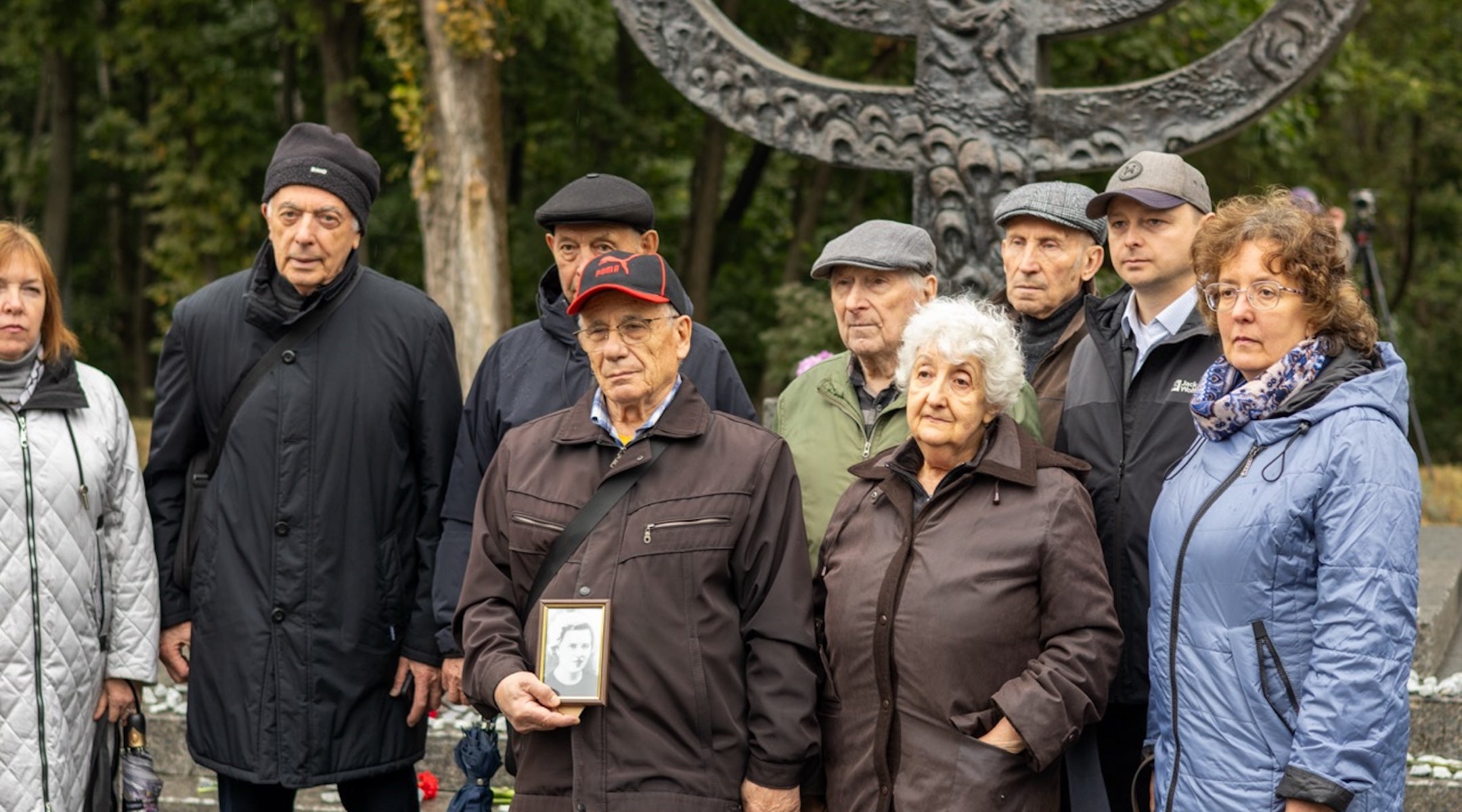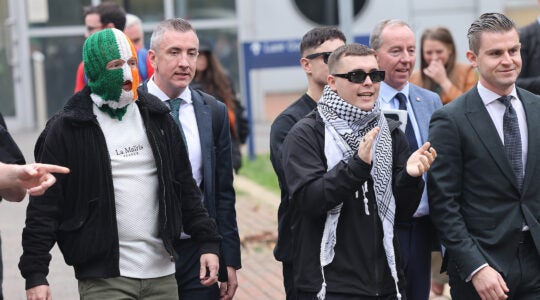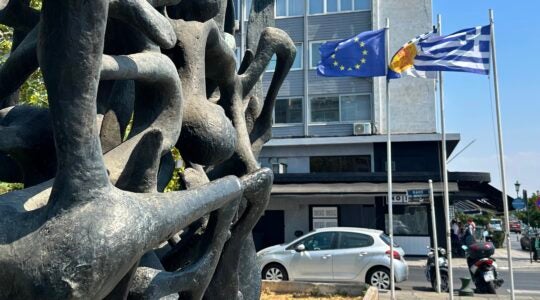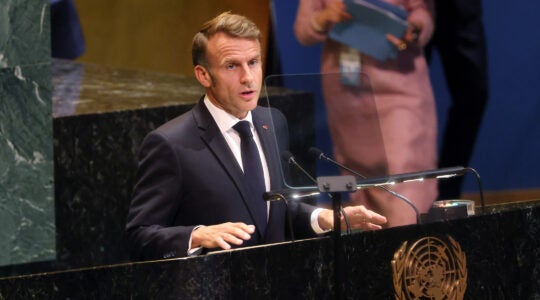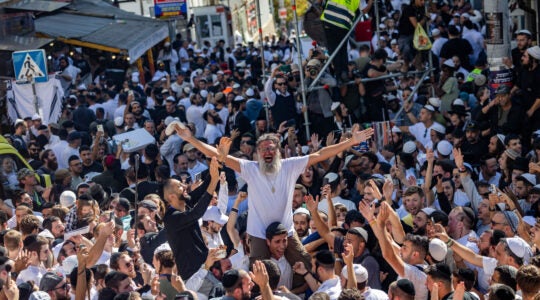KYIV, Ukraine — Just hours after a deadly Russian attack on Kyiv, Jewish community members gathered on Sunday for the 84th anniversary of the Babyn Yar Massacre, in which Nazi forces killed 33,771 Jews on the outskirts of the city in 1941.
At a second ceremony on Monday, the CEO of the Babyn Yar Holocaust Memorial Center, Anna Furman, revealed that researchers with her center had uncovered the identities of an additional 1,000 people buried in the ravine — names that had until now been lost to history.
“I am proud that our team has done this, discovering new facts and outcomes through collaboration with researchers, institutions, and by analyzing all the materials we could find,” Furman said. In total, she said, her team had identified 29,000 of the more than 100,000 people killed at Babyn Yar by the end of World War II.
The 1941 massacre at Babyn Yar was one of the single largest mass killings of Jews during the Holocaust and is the archetype of what scholars have termed the “Holocaust by bullets.”
To preserve the memory of those who were killed and their descendants, Ewgeni Gorodetski and Dmytro Yurinov co-founded the Babyn Yar March of Memory, which follows the “March of Death” Jews were forced to walk on their way to their deaths at Babyn Yar from Lukianivska Square.
This year, attendance on the annual march on Sunday was lower due to the overnight attack, which claimed the lives of four civilians and injured dozens more.
“We are happy for everyone who has arrived. Even after the bombardments. We came with you down a street that, for example, has been the most bombarded,” Gorodetski said. “But we also see how much is being rebuilt, and most importantly, that the people and our memory are still present.”
Members of the Jewish community, students and diplomats gathered at the Babyn Yar Menorah, which marks the site of the killings and where Nazi forces returned to eliminate evidence of the massacre. There, they recited the Mourner’s Kaddish and left stones in memory of those who were killed.
A replica menorah in a different city was damaged early in the war, prompting concerns that Russian attacks may be targeting Jewish sites.
At the Monday ceremony at the memorial’s synagogue, Babyn Yar Holocaust Memorial Center General Director Oleksiy Makukhin also announced that construction had been completed on an interactive monument known as Robina House.
“We wanted its interior to be decorated similarly to the synagogue because Robina is a place where people come to learn and understand the world,” he said.
The Russia-Ukraine war worked its way into the remarks of each representative who spoke, as they urged Ukrainians not to forget the memory of those who were killed in the Holocaust.
“On this day, with deep respect, we bow to every soul lost here,” Furman concluded.
Rabbi Yaakov Bleich recited El Malei Rachamim in the memory of those who were killed.
This reporting was supported by the International Women’s Media Foundation’s Women on the Ground: Reporting from Ukraine’s Unseen Frontlines Initiative in partnership with the Howard G. Buffett Foundation.
JTA has documented Jewish history in real-time for over a century. Keep our journalism strong by joining us in supporting independent, award-winning reporting.
